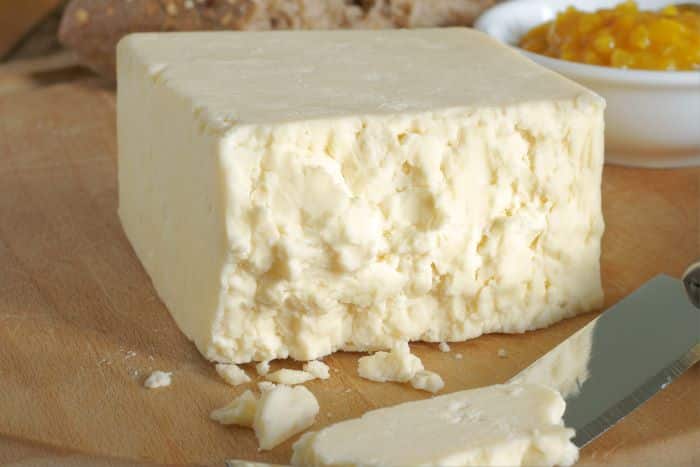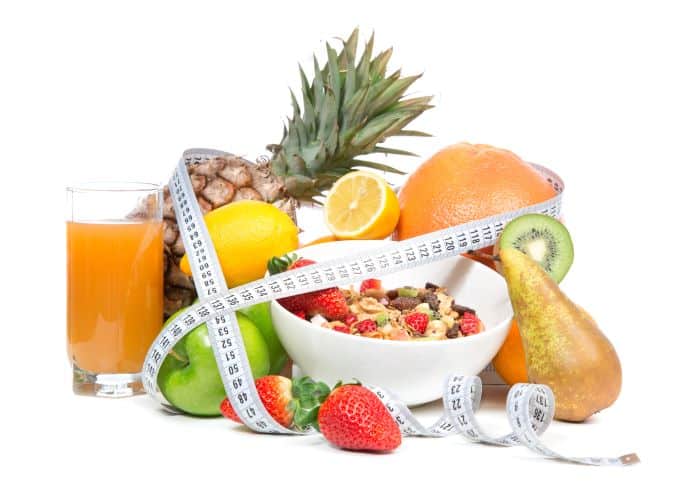
Endangered foods are traditional foods that are at risk of extinction. These foods have played an important role in communities’ cultural and culinary heritage. However, as the demand for food increased, many unique and delicious foods started becoming extinct. In the UK, several foods are particularly at risk, and we must take action to preserve them for future generations. This article will explore the seven foods the UK urgently needs to save. In no order of importance, we have discussed them.
Cheshire cheese
Cheshire cheese is a traditional, hard cheese produced in the county of Cheshire in England for centuries. It is made from cow’s milk and has a crumbly texture with a tangy and slightly salty taste. Cheshire cheese is known for its unique flavor and texture, resulting from the unique combination of the local climate, soil, and the breed of cows. Unfortunately, traditional cheese is endangered due to a decline in the number of small-scale dairy farmers in the region and an increase in the production of cheaper, mass-produced cheeses. Therefore, we must support small-scale Cheshire cheese producers to ensure the continuation of this traditional food and its unique taste.
Beremeal
Beremeal has been a traditional barley grown in the Orkney Islands, Scotland, for centuries. It is a unique variety that is well-suited to the harsh climate and poor soils of the islands. Beremeal is used to make a type of porridge called “bannock,” which is a staple food in the Orkney Islands. However, Beremeal is considered an endangered food due to the decline of small-scale farmers and a shift towards modern barley varieties. The reduction of this traditional grain also threatens the cultural heritage of the Orkney Islands. Therefore, efforts are implemented to promote the planting of Beremeal by small-scale farmers and educate the public about the importance of supporting traditional food systems.
Norfolk beefing apple
For centuries, the Norfolk beefing apple has been a traditional variety of apples grown in Norfolk, England. It is a large, green apple with a firm texture and a tart taste. The name “Beefing” refers to the fact that it was often used to feed cattle during winter. The Norfolk beefing apple is endangered because it is no longer widely grown and is difficult to find in the market. The decline of traditional orchards and the preference for modern, disease-resistant varieties have contributed to the deterioration of this variety. Efforts are made to conserve the Norfolk beefing apple by encouraging small-scale orchardists to plant it and promote its use in cooking and cider making.
Perry
Perry is a traditional type of pear cider made from a specific type called “Perry pear.” It is often made in the West of England and the Welsh borders and has a long history dating back to the Middle Ages. Perry pears are small, hard, and often bitter to eat, but they make a delicious and refreshing cider when fermented. However, Perry is an endangered food because many traditional orchards are lost, and the number of Perry pear trees has declined significantly. The decreased demand for traditional ciders and the preference for mass-produced alternatives are also contributing factors. Therefore, efforts are implemented to promote the planting of Perry pear trees by small-scale orchardists and to raise awareness of this traditional beverage among the public.
Saddleback pigs
Saddleback pigs are a traditional breed of pig raised in the UK for centuries. They are known for their distinctive black-and-white coloration and their hardiness. They are well-suited to outdoor farming and are known for their high-quality meat with good marbling and a rich flavor. However, Saddleback pigs are endangered due to the decline of small-scale pig farming and the preference for modern, intensively-farmed breeds. Efforts are in place to conserve this traditional breed by promoting its use in sustainable, small-scale agriculture and raising awareness of its unique qualities among consumers.
Scottish birch water
Scottish birch water is a traditional, non-alcoholic beverage made from the sap of silver birch trees. It is typically collected in the spring and has a light, sweet, and slightly woody taste. It is known for its health benefits, including its high mineral content, and it is a low-calorie alternative to other sweetened beverages. However, birch water is an endangered food in the UK because of the decline of the traditional practice of tapping birch trees for sap and the lack of commercial interest in producing it. Efforts are in place to promote birch sap’s sustainable harvesting and raise awareness of this traditional beverage and its benefits among the public.
Wild Atlantic salmon
Wild Atlantic salmon is a traditional fish species caught along the Atlantic coast of the UK, Ireland, and Europe for centuries. Known for its distinctive flavor, texture, and high nutritional value, it is considered a delicacy. However, wild Atlantic salmon is now an endangered food due to overfishing, pollution, dam construction, and other barriers that impede migration. Efforts are implemented to conserve wild Atlantic salmon through measures such as catch quotas, habitat restoration, and the removal of dams to improve access to spawning grounds.
Conclusion
In conclusion, traditional or heritage foods play an important role in our cultural and culinary heritage. Still, many unique and delicious foods are endangered due to the increasing demand for mass-produced, easy-to-grow varieties. In the UK, several foods are particularly at risk, including Cheshire cheese, Beremeal, Norfolk Beefing apples, Perry, Saddleback pigs, Scottish birch water, and Wild Atlantic salmon. These foods have a rich history and cultural significance, and we must take action to preserve them for future generations.






